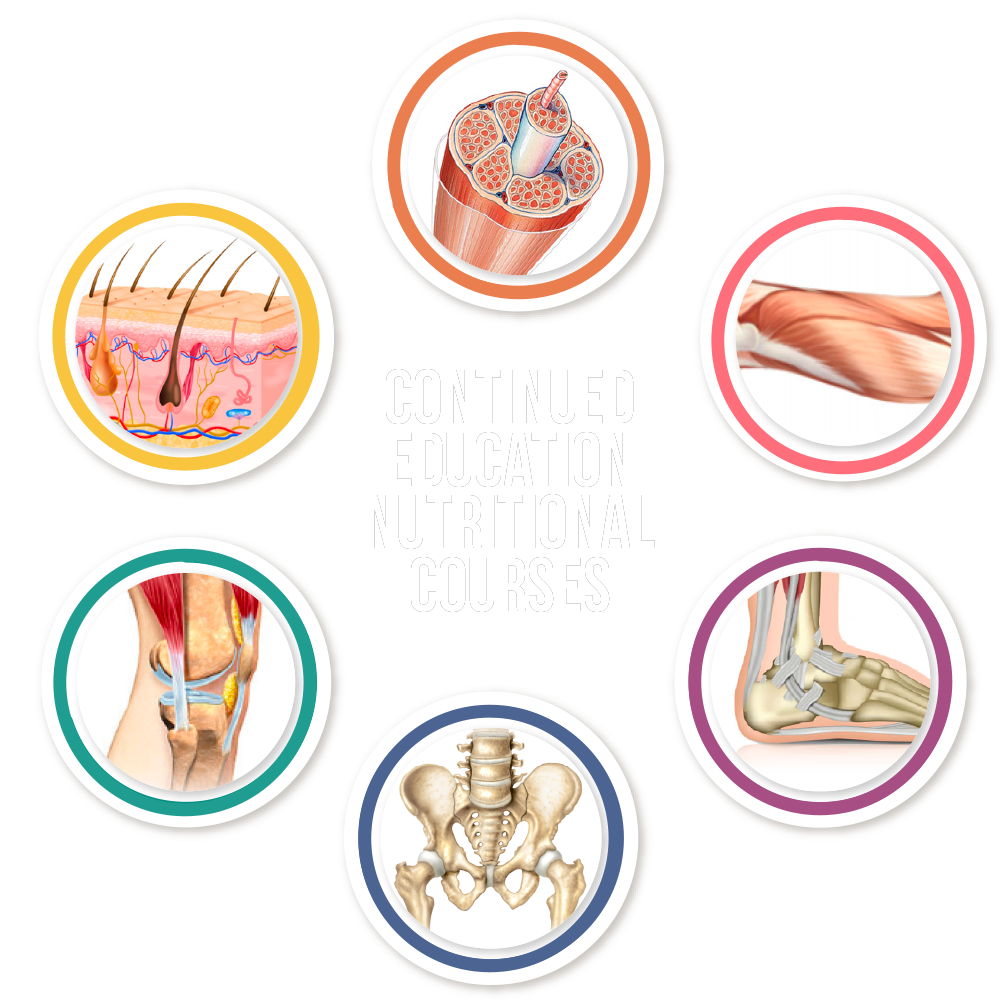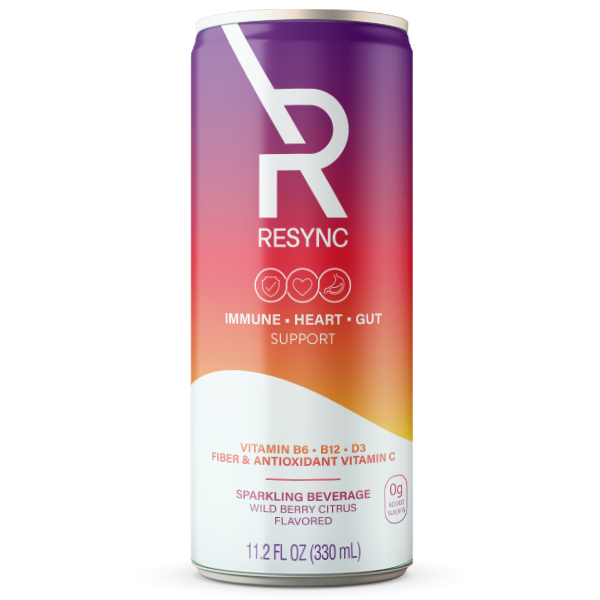
Active & Retired Athletes
How To Address Fatigue And Expedite Recovery
With The Right Tests And Protocols
The secret to better performance is better recovery.
In the high-stakes world of professional sports, athletes relentlessly push their minds and bodies to the limit, striving for excellence every day.
Along the pursuit of greatness, an often-overlooked aspect looms large: the cumulative toll that physical and emotional fatigue can take on an athlete's consistent performance, recovery, and overall well-being.
This blog delves into the critical yet under-discussed topic of recovery from exhaustion, a vital component for sustaining peak performance during an athlete’s prime and ensuring a healthy, not just wealthy, retirement.
We have all heard it before: our health is our wealth, and money cannot always buy you health.
The constant grind of training, competition, and the pressures to perform can exhaust even the most resilient athletes. Physical fatigue manifests in many ways, such as sore muscles, diminished strength, and increased injury risk, while emotional exhaustion erodes consistent motivation, focus, and emotional composure.
When either one is unaddressed, this dual burden can undermine an athlete's potential and shorten their career.
That’s why everyday recovery is essential.
Recovery is not about passive rest. It involves strategic interventions tailored to individual needs. By incorporating the right tests and protocols, athletes can efficiently mitigate fatigue and enhance their recovery time.
From cutting-edge diagnostic tools to personalized recovery protocols, the science of recovery is evolving, offering promising solutions for both active and retired athletes.
Understanding and prioritizing recovery is paramount for both those still competing and those who have hung up their jerseys.
Effective recovery strategies can extend active athletes’ prime years, allowing them to perform at their best consistently and prevent career-ending injuries.
For retired athletes, addressing the lingering effects of their demanding old careers is crucial for a smooth transition to post-sports life, where physical and emotional health remain vital. And often, athletes feel abandoned, with no teams of coaches or health professionals to look after them.
Feeling lonely and sometimes feeling a bit lost.This blog will serve athletes, coaches, and sports enthusiasts who seek valuable, science-based research, applicable strategies, and protocols. It's time to elevate the conversation around recovery and recognize its indispensable role in achieving success and long-term well-being in sports and life.
Trust Reync as your resource for recovery so you can have one less thing distracting you from achieving and feeling your best.
What markers should athletes pay attention to for fatigue?
If you’re an athlete, you probably have many names for “fatigue”.
To understand how to address it, you must ask critical questions to know whether you are experiencing fatigue due to day-to-day lifestyle factors, causes outside your control, or redlining into the overtraining zone.
Your standard lab panels are a good step forward.
What can you expect on those tests?
Lipids and a metabolic panel provide common nutrients of concern, such as vitamins D and B12.If you find concerning results there, you should start with adapting changes to nutrition and lifestyle strategies that help you achieve better levels.
For specialized results, though, you need specialized assessments. The rest of this article tells you exactly which ones.
These specialized tests can help you get a clearer picture of what you can do to put your energy back into your tissues, muscles, and hands.

EXPAND YOUR KNOWLEDGE
WITH RESYNC NUTRITION & CONNECTIVE TISSUE COURSES
The Resync team has curated a 6-part course that dives deep into every layer of the body.
These courses provide evidence-based nutrition recommendations to optimize performance, accelerate recovery, promote healing from an injury, and manage symptoms of connective tissue conditions that are responsive to nutrition.
Save 20% Off All Resync Products
Use Code: BLOG2021
Shop NowSpecialized blood lab tests to address fatigue:
- Complete micronutrient (vitamin and mineral) testing. Higher demands on your body increase your need for nutrients. For example, elevated cortisol and high-level exertion can lower your magnesium levels, leading to fatigue.
- Amino acids and antioxidants, such as Glutathione and Cysteine levels, give you an idea of how your metabolism is functioning, handling toxins, and clearing out waste products.
- A complete thyroid panel provides a clear window into your metabolism since thyroid hormones control energy balance (hunger, calories burned at rest), temperature, metabolism of macronutrients, and more.
- Complete blood count (CBC) with white blood cell (WBC) differential - gives an idea of how your immune system may be contributing to the symptoms you experience
- Sex hormone testing - testing estrogens, progesterone, and androgens — in both men and women — can tell a lot about your metabolism, daily energy production, and overall motivation.
- Inflammatory markers and damage markers—creatine kinase, myoglobin, and lactate dehydrogenase—give a picture of muscle damage. Interleukin-6 and TNF-alpha show more systemic inflammatory effects.

Other types of tests to address fatigue:
- Steroid hormone urine analysis. The “DUTCH” complete test is a reputed and popular test that shows how your body handles steroid hormones like estrogen, testosterone, and others.
- Cortisol is another vitally important indicator for fatigue, and it can be tested in urine, saliva, and some blood testing services. It’s important to take a cortisol test at multiple time points in the day since healthy cortisol cycles are an important factor in fatigue and energy levels. Additionally, the ratio of cortisol to the opposing hormone DHEA, is a valuable calculation.
- Genetic/Epigenetic tests. Services like Nutrigenomix analyze your DNA for common variants that affect how your genes are expressed (“epigenetics”). Having this kind of information tells you what kind of cards you were dealt so that you can play to your strengths and be mindful of your potential innate weaknesses. Knowing how well your connective tissue recovers, or what types of fats and carbs to fuel yourself with, is practical and powerful.
- Gut microbiome stool tests. Genova Diagnostics can give an idea of the gut microbiome contributors to your health. Working with a GI professional can help you optimize your results.
- Physical signs. The tried and true method of testing heart rate at rest and at different levels of exertion gives valuable information on overtraining-related fatigue. New approaches to measuring recovery, like the Woop App, calculate an estimated recovery level based on heart rate, heart rate variability, and other measurements.
How often should athletes get specialized lab tests?
One important thing to point out is that your levels will be particular to you. So, It’s important to take tests regularly. Your off-season lab test results may look completely different than in season. That’s why it is critical to test yourself before season, in-season and post-season. Annual tests are good for those who are retired. You must watch your personal trends and draw conclusions over time.
If you or your team wants to experience one-of-a-kind recovery retreats, where we test every layer of your body off-season so you can thrive in season. Check Beyond Muscle Recovery Retreats.

RESYNC RECOVERY
VEGAN NITRIC OXIDE BLEND
Nitric Oxide Reds + Anti-Inflammatory Properties
- Taken by elete athletes and MLB, NBA, NFL, NHL, US Soccer & NCAA Teams
- Clinically tested, researched & 3rd party tested (NSF Sport Certified)
- Resync Red Spinach ≈ 5 X's More plant-based nitrates than in beets alone
- Support circulation for better heart health, nutrient delivery, and recovery with less soreness*
- Create healthy inflammatory response post physical activity*
- Antioxidant and immune support*
- Promote healthy brain & cognitive function*
- Support more restful sleep *
Save 20% Off All Resync Products
Use Code: BLOG2021
Shop NowHow do overreaching, overtraining, and burnout affect fatigue markers in athletes?
Athletes at a Stable Functional State
An athlete keeping up their fitness level but not pushing excessively hard will likely have most markers looking within the standard range. It is normal to see elevated levels of certain damage markers after intense workouts(e.g., creatine kinase), but this is expected and resolves by itself within days. A well-balanced athlete should feel energized, motivated, and able to push themselves hard on training days and unwind on off days.
Functionally Overtrained Athletes
During periods of functional overreaching, a well-balanced athlete will likely experience temporary changes that can look concerning.
Heart rate, testosterone, cortisol, DHEA, Sex Hormone Binding Protein, and more will change adversely, which is accompanied by a subtle decrease in motivation, low energy, impaired sleep, mild fatigue, and slow recovery.
The point of a period of functional overtraining is to push yourself to the edge of your limits and then back off to allow your body to recover. When you tread that fine line well, you can level up your baseline and break through a plateau.
If you push it too hard in this delicate state, you can do more harm than good.
Cortisol dysfunction starts to become relevant at this stage. Healthy cortisol cycles look like having high cortisol upon waking, levels that taper through the morning, and low levels of cortisol in the afternoon and evening. Having healthy cortisol also means having elevated levels during a stressful or highly demanding event.
For many people feeling more fatigued, cortisol is slow to rise and slow to recover.
Recovering from a period of functional overtraining can take a couple of weeks, and the recovery process has to be allowed to proceed completely to realize those gains. It’s in this functional overreaching zone that targeted supplements, nutrition, and lifestyle adjustments can have a huge impact on improving your capacity to recover.
For example, collagen tissues are most damaged in the 36 hours after an intense exercise, whereas collagen synthesis doesn’t peak until 72 hours after.
This leaves the body in a particularly vulnerable state two days after training if you don’t have the right nutrition to support your collagen tissues in that in-between period. Knowing the factors that determine your individual ability to recover your connective tissues is key for structuring an effective training block.
Overtrained and Burnt-out Athletes
For an overtrained athlete experiencing burnout, these tests worsen and become more chronically impaired.
If sex hormones and these other tests have been down for months, and the drive to train is just not there, then having an honest conversation about the long-term plan to address your fatigue becomes necessary.
Cortisol cycles become flipped in the chronically fatigued state. Cortisol is low in the morning, leading to grogginess and low motivation, and cortisol is higher in the afternoon and evening, making it hard to focus and difficult to sleep.
Long-term, this state wreaks havoc on your ability to train and recover, fight infections, manage your metabolism, and so much more.
At this point in the development of chronic fatigue, a lifestyle overhaul is warranted, and you may need to take months off in order to get your health back in a state to train your best.
What tests should retired athletes look at to address fatigue?
All the same, tests used early in one’s career can be used after you’ve retired from the sport.
You will want to make sure you reference age-matched ranges to understand where you should expect your levels to be. Lately, attention has been on optimizing testosterone levels in older men to help them live more fulfilling lives. Women have known the benefits — and potential risks — of hormone replacement therapy for fatigue for decades. Work with a doctor trained in hormone replacement therapy to see if this is an appropriate treatment option for you.
Although it’s less sexy, we can’t understate the importance of vitamins D3 & K2 for bone density and heart health. This is particularly significant as you age, as your ability to absorb and use Vitamin D can decrease.
In our further analysis, we will dive deeper into minerals and vitamin analyses, especially important for retired athletes. Otherwise, as a retired athlete, you may see the slow creep of chronic disease that happens so often later in life, like a rise in weight, blood glucose, blood pressure, cholesterol levels, etc.
Not knowing how to take care of your health in retirement is only normal — without the team and the support system around you, it’s no wonder many former athletes fall into this trap.
If you are this type of person, the solution to the root cause may come down to finding meaning in life after you no longer identify with the title you have held for so long.
Now more than ever it is important to put your needs first. We are here to help when the time is right for you.
Check how coaching can help.
Emotional Contributors to Physical Fatigue
Emotional stress from various sources — personal life challenges, performance pressure, or even the mental strain of maintaining high levels of focus, composure, and discipline — can also contribute significantly to fatigue.
We often forget that fatigue is not just a physical phenomenon. It is deeply intertwined with emotional and psychological factors.
This may not surprise you, but the higher our emotional intelligence is, the lower our cortisol levels.
In turn, that affects weight gain and metabolism, the body's ability to retain water and regulate electrolytes, and the levels of nutrients in your body. This combination of physical and emotional stress can result in reduced energy and focus levels, impaired performance, sleep, and a protracted recovery.
If you think about it, all the healthy habits that go into sustaining an athletic lifestyle are easier when your emotions are regulated enough to let you take action on your intentions.
By maintaining your emotional stability and mental hygiene, you’re setting yourself up for stability in life.Incorporating mindful practices can further enhance the recovery process and bring peace and resilience to the body.
Whether you are an active or a retired athlete, recognizing and managing both the physical and emotional aspects of fatigue is crucial for maintaining peak performance and overall well-being.
Takeaways
In conclusion, whether you are an active pro athlete pushing the limits of your performance or a retired athlete seeking to maintain a healthy and active lifestyle, addressing fatigue and enhancing recovery is paramount.
This article scratches the surface of how you can unlock better performance through a comprehensive, holistic approach that includes the right tests and recovery protocols.
Regular lab tests allow you to check for physiological imbalances that impact every domain of your life, and they provide valuable insights into the underlying causes of fatigue.
Combining these diagnostic tools with tailored recovery protocols, such as personalized nutrition, fascial-focused movement to rehydrate your tissues, and targeted hands-on therapies, ensures a holistic and complete approach to optimizing recovery.
Good recovery is the natural prerequisite for optimal performance, so prioritize a well-rounded strategy to reduce fatigue and enhance your performance in a way that sustains your success on and off the field.
As your all-in-one resource for all things recovery, you can bet that our next content is going to give you the specific nutrition and lifestyle tactics to take charge of your recovery

JOIN OUR NEWSLETTER
Stay up to date with the latest science-backed data, receive expert knowledge, and healthy inspiration for you and your family.
Get 15% Off Your Order When You Sign Up For Our Newsletter
Save 20% Off All Resync Products
Use Code: BLOG2021
Shop NowWritten by:


Barbara Depta and registered dietitian Detrick Snyder, MPH, RDN.






